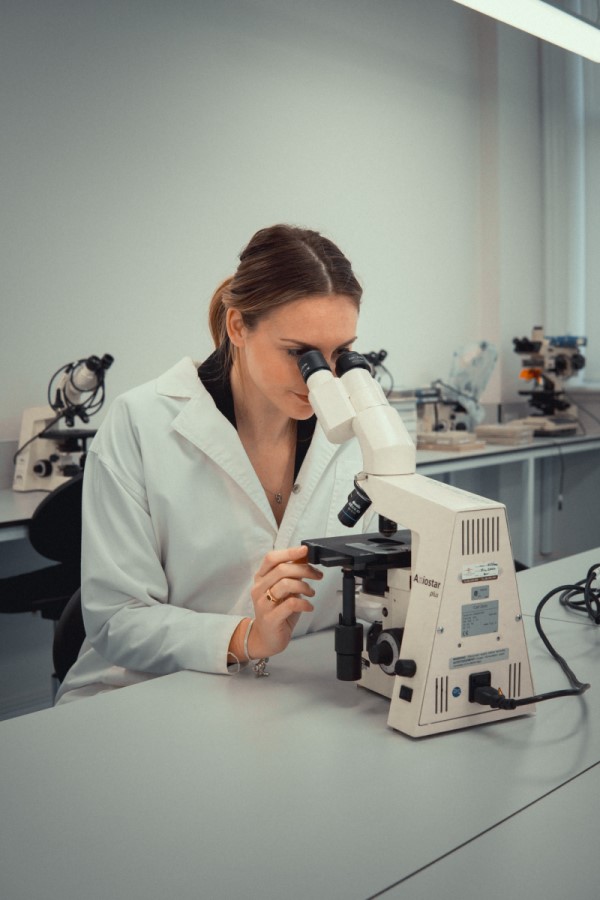A surge in challenging calf muscle injuries in elite sportspeople and the link between gut health and Parkinson’s disease are among seven research projects to be awarded tens of thousands of dollars in seed funding from the University of Notre Dame Australia.
Notre Dame can today reveal it will invest $300,000 in seven transformative and world-leading research projects that address global challenges.
A world-first international monitoring project for calf muscle strain injuries in elite sports, ‘The Calf Project’, will kick off early next year.
Lead researcher and Notre Dame Senior Lecturer, Doctor Brady Green, will work with organisations around the world to learn more about calf injuries and prevention, including AFL clubs and the Irish Rugby Football Union.
Calf muscle strains are a global clinical challenge and are especially problematic in elite sports because of the risk of re-injury and the long recovery time, which can be more than 100 days for some athletes.
“Calf muscle injuries have plagued some of Australia’s most well-known sportspeople in recent times,” said Dr Green.
“Matilda’s superstar Samantha Kerr was struck down by a calf injury on the eve of this year’s Women’s World Cup, forcing her to miss the first three games. Australian off spinner Nathan Lyon was also forced out of Australia’s winter Ashes campaign when he strained his calf during the second cricket test against England in June.
“Despite the global challenge calf injuries present, high-quality and high-value prevention research is really lacking, which makes it hard for clinicians to prevent them and stop them from re-occurring.”
Associate Professor Ryan Anderton will lead a pioneering, long-term study that will provide insights into the way gut health contributes to the development of Parkinson’s disease.
Gastrointestinal issues in people with Parkinson’s disease can present decades before the onset of motor symptoms, and they are one of the greatest burdens to quality of life.
The study will follow patients over five years and will be the first to provide real-time data collected in the gastrointestinal tract, which will be done using innovative technology that can detect extremely quiet vibrations in the human body.
Professor Anderton’s research has the power to help improve the prognosis for people with Parkinson’s disease, while also identifying biomarkers and improving wellbeing.
The researchers were awarded funding after pitching their projects to a panel of Notre Dame leaders and external research experts as part of the University’s first Big Ideas internal research funding scheme.
The Big Ideas – PVCR Strategic Initiatives Fund is designed to foster research innovation and ambitious research partnerships worldwide.
The other researchers who were awarded funding are:
- Professor David Kissane and Adjunct Associate Professor Natasha Michael to develop a holistic wellbeing approach to better support palliative care patients, partnering with the Archdioceses of Melbourne and Sydney who are contributing $100,000 to the project.
- Professor Lisa Wood and team to continue her transformative studies into the impact of homelessness on pregnant women, new mothers, and babies.
- Dr Kate Levett and team for research into modern maternity care – one of the most expensive areas of health care - using hyperemesis as a case study.
- Associate Professor David Bronstein and Doctor Nathan Lyons to support their pitch to develop a new Centre for the History of Philosophy in partnership with Notre Dame USA’s History of Philosophy Forum.
- Dr Shaun Blanchard, Rev Dr Benjamin Johnson OFM Cap., and Dr Annemarie McLaren to develop research projects and pursue grant-funding opportunities in the field of Catholic History.
Investment in the Big Ideas scheme is a key initiative of the University’s new Research Strategy 2023-26 – a strategy that focuses on real-world challenges and seeks to improve people’s lives.
Pro-Vice Chancellor Research, Professor Aron Murphy, said the ideas presented at the pitch event were outstanding and included major partnerships, international collaborations and high-impact outcomes.
“The University looks forward to supporting our researchers to see their Big Ideas and ambitious research projects and partnerships flourish in the coming year,” he said.
Media Contact: media@nd.edu.au

